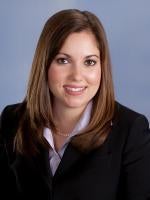Public Access Opinion 14-009 recently established that a public body cannot require a person to disclose his or her address during the public comment portion of an open meeting. This binding opinion, published on September 4, 2014, serves as a warning to public bodies that its actions will be carefully examined for violating the Open Meetings Act ("OMA"), 5 ILCS 120/3.5 (West 2012).
On April 14, 2014, Janet Hughes ("Hughes") attended a Lemont Village Board ("Board") meeting. During the audience participation period, Mayor Brian Reaves ("Mayor Reaves") solicited comments from the audience. Hughes gave her name and stated that she was a taxpayer from Lemont. Mayor Reaves interrupted Hughes and requested that she state her address. Hughes provided her street name and continued speaking. Mayor Reaves interrupted Hughes again and stated that he needed her complete home address before she could continue commenting. Hughes replied that she was not comfortable providing her home address. At that point, Mayor Reeves asked the village attorney, Jeff Stein ("Stein"), whether her full address was required before commenting. Stein told Hughes she could continue without providing her address, but that it would be "helpful" to have it. Hughes ultimately disclosed her home address before making her comments to the public.
Hughes submitted a Request for Review to the Public Access Counselor ("PAC") where she alleged that Mayor Reaves and Stein "pressured" and "forced" her to disclose her home address before she could continue her comments during the Board meeting. The PAC interpreted the OMA and issued a binding opinion.
In the opinion, the PAC explained that Section 2.06(g) requires all public entities subject to the OMA to provide an opportunity for members of the public to speak at open meetings. Section 2.06(g) provides: "Any person shall be permitted an opportunity to address public officials under the rules established and recorded by the public body." 5 ILCS 120/2.06 (g).
An individual's right to address public officials at open meetings can be subject to limitation. Public entities have rules to maintain decorum and to ensure that meetings are conducted efficiently. The plain language of section 2.06(g) states that individuals can address a public body subject only to a public body's established and recorded rules. However, public bodies may promulgate reasonable "time, place and manner" regulations to further a significant governmental interest. For example, a public entity may create a time limit for public comment to ensure a variety of individuals have the opportunity to speak.
In this case, the Board's established and recorded rules governing public comment did not require a person to publicly state his or her home address as a prerequisite to speaking. Instead, the Board asked for residents' addresses because it was a "longstanding custom and practice." The Board asserted that having individuals' home addresses allowed the Board to keep accurate meeting minutes, determine if comments were raised by residents, and respond to their concerns.
The PAC considered the Board's arguments and stated "in considering whether it is good policy to ask members of the public to provide their addresses when making public comments, there are reasonable arguments on both sides." Public Access Opinion 14.009, p. 6, Sept. 4, 2014. However, the PAC concluded the Board violated the OMA during the public comment portion of its open meeting by requiring Hughes to provide her full address in order to speak.
The PAC explained that providing a home address is not reasonably related to promoting decorum or ensuring that others have an opportunity to comment. Nothing prohibits a speaker from providing his or her address voluntarily, but section 2.06(g) does not support a requirement that a person must state his or her home address prior to being allowed to speak. The PAC expanded its holding when it stated that requiring the public to provide a complete home address before commenting at a public meeting would have a "chilling effect" on individuals who wish to speak at public meetings. Therefore, the PAC concluded that a rule which requires speakers to state their home addresses violates section 2.06(g) of the OMA, even if such a rule is established and recorded by the public body.
Opinion 14-009 has been criticized by commentators since its release. In addition to the PAC's conclusion that the Board violated section 2.06(g) of the OMA, the PAC bolstered the opinion when it concluded that establishing such a rule would have exceeded the scope of the Board's authority. Critics argue that this issue is related to an individual's right to the freedom of speech rather than a statutory right under the OMA. Critics contend, therefore, that the PAC's public comment opinions appear to be outside of the PAC's jurisdiction.
Regardless, public bodies subject to the OMA should closely examine their established policies to guide thier official conduct in open meetings. Any policy that requires the public to disclose a home address is a violation of the OMA and should be revised. Furthermore, it is important to recognize that actions by public bodies pursuant to the OMA will be highly scrutinized.




 i
i


